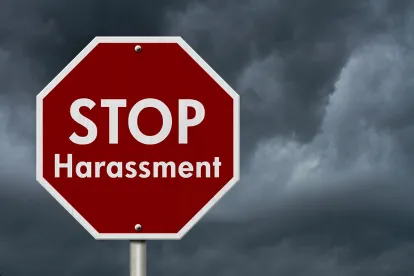Texas Governor Greg Abbott recently signed two new bills, effective September 1, 2021, which will arm employees with new tools and protections for asserting sexual harassment in the workplace claims. Here is what Texas employers need to know:
The definition of an “employer” has expanded.
Currently, an employer must have 15 or more employees to be covered by the Texas Labor Code’s anti-sexual harassment laws. As of September 1st, Senate Bill 45 (Tex. Lab. Code § 21.141), will define an “employer” as a person who (1) employs “one or more employees;” and (2) “acts directly in the interests of an employer in relation to an employee.” First, the new definition means that all employers, including those with only one employee, could be held liable for damages as a result of sexual harassment claims. Second, supervisors, managers, and co-workers may also be named as defendants in sexual harassment lawsuits and held personally liable for damages. This is a major change because it creates the potential for individual liability against the alleged harasser (which previously only arose within the employment context when there was a common law claim for assault). As a result, far more Texas employees are now able to sue for unaddressed sexual harassment than before, in state court, and removing cases to federal court will be more difficult. It is also conceivable that the plaintiff’s bar will attempt to argue that independent contractors, vendors, clients, and other third-parties may qualify as “employers” under this new statute. This underscores the importance of employer’s not only reviewing their own internal policies and procedures, but also their vendor and service agreements with contract partners.
The definition of “sexual harassment” is more detailed.
The new law provides a clear, detailed, description of prohibited behavior. Specifically, sexual harassment is defined as “an unwelcome sexual advance, a request for sexual favor, or any other verbal or physical conduct of a sexual nature if: (a) submission to the advance, request, or conduct is made a term or condition of an individual’s employment, either explicitly or implicitly; (b) submission to or rejection of the advance, request, or conduct by an individual is used as the basis for a decision affecting the individual’s employment; (c) the advance, request, or conduct has the purpose or effect of unreasonably interfering with an individual’s work performance; or (d) the advance, request, or conduct has the purpose or effect of creating an intimidating, hostile, or offensive working environment.” This definition gives employers further direction when analyzing employee behavior and investigating complaints.
Employers must act quickly after receiving a complaint of sexual harassment.
Employers should always take sexual harassment complaints seriously and investigate allegations immediately. However, in light of the recent #MeToo movement and influx of sexual harassment claims, Senate Bill 45 (Tex. Lab. Code § 21.142) appears to intensify the pressure on employers to look for concerning employee activity and act swiftly upon receipt of a sexual harassment complaint. The new law specifically provides that an unlawful employment practice occurs if an employee is subjected to sexual harassment and the “employer or employer’s agents or supervisors (1) know or should have known that the conduct constituting sexual harassment was occurring; and (2) fail to take immediate and appropriate corrective action.” Although immediate and appropriate corrective action is not defined, which makes it difficult to predict how the courts will interpret and apply the new language, employers should avoid any delays in addressing concerns and complaints. Employers often rely on the Faragher-Ellerth affirmative defense to defend their actions by establishing that the company took reasonable care to prevent harassing behavior and prompt corrective action when presented with complaints about a supervisor in federal court. This new Texas law appears to codify those expectations of employers and their agents in the workplace.
Employees have more time to file charges of discrimination for sexual harassment.
Historically, Texas employees who believe they have been subjected to unlawful employment practices (e.g., discrimination based on race, nationality, color, age, etc. or retaliation) have 180 days from the date of the alleged event to file a charge of discrimination with the Texas Workforce Commission. House Bill 21 (Tex. Lab. Code § 21.201(g)) extends that time to 300 days.
The change in Texas is consistent with the broader national shift to expand protections against sexual harassment. In short, the speed and accuracy of investigations, as well as effective remedial measures, are more important than ever. Employers should also review their employee handbooks, policies, and procedures to ensure the language appropriately reflects the new laws.





 />i
/>i

